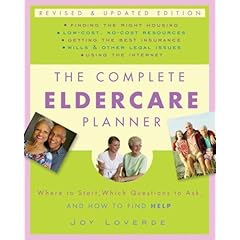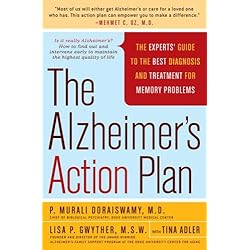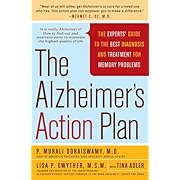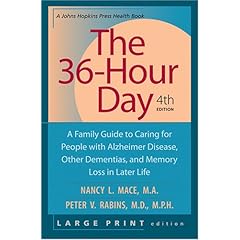I learned the hard way that my mother was not taking her hypertension medicine as prescribed. I discovered this many months after she was diagnosed with dementia and probable Alzheimer's.

If I had paid attention sooner, would it have made a difference in her diagnosis? I'll never know for certain.
This I believe. If I had paid attention, I would have realized sooner that something was wrong. Very Wrong. This would have allowed me to get my mother taking her medication as prescibed and gotten her diagnosed sooner.
Here is how I discovered my mother was not taking her prescription medicines as prescribed.
I went to the pharmacy and asked for a print out of the previous 12 months. When I looked, I was aghast.
If you have an elderly parent here is my advice to you. Don't be lazy, get the printout from the pharmacy. After a quick review you will know if the medications were purchased and if they were taken on schedule.
You can put you head in the sand and wait for Alzheimer's or dementia to present in someone you love. Or, you can start paying attention to the little things. The little changes in behavior that come with dementia long before it is detected.
I guess you could say we were fortunate. Two of the worst things that can happen from not taking hypertension medication are a heart attack or a stroke.
Early detection of Alzheimer's is important and critical to the quality of life your loved one is likely to experience. We got there early and my mother has benefited.
Enough said.
Subscribe to The Alzheimer's Reading Room
Patients Can't Recall Their Medication to Tell Doctors
“We think doctors may be prescribing more medications because the patients aren't giving them the right information about what they are taking ..... I've seen patients who continued on drugs that I told them to discontinue and stop taking drugs I never told them to stop using."
Doctors rely on patients to accurately tell them what prescription medications - and what dosages -- they are taking in out-patient visits. (A patient's chart may not always be available or complete.) That information is essential for physicians to monitor whether a drug is working, and whether it may have adverse interactions with any new medications prescribed.
Depending on patients' recall of their drugs, however, may be dangerous to their health.
New research from Northwestern University's Feinberg School of Medicine has found that nearly 50 percent of patients taking antihypertensive drugs in three community health centers were unable to accurately name a single one of their medications listed in their medical chart. That number climbed to 65 percent for patients with low health literacy.
“It was worse than we expected,” said lead author Stephen Persell, M.D., an assistant professor of medicine, and of the Institute for Healthcare Studies at the Feinberg School, and a physician at Northwestern Memorial Hospital. “It means doctors can't ask patients to tell them the medications they are taking for their chronic conditions like hypertension. It's very hard to get at the truth of what medications the patient is actually taking.”
The study will be published in the November issue of the Journal of General Internal Medicine.
The Northwestern study looked at 119 patients, average age 55, from community health centers in Grand Rapids, Mich. Researchers asked them to name their antihypertensive drugs and then compared their answers to the drugs listed in their medical charts.
While the study focused on low-income patients, Persell said other patients likely have similar trouble recalling the names and dosages of all their medications, particularly those who take a lot of different drugs and the elderly, who may have cognitive limitations.
The gap between what medications a doctor thinks a patient is taking - and what a patient actually takes - is a new focus for improving the safety and quality of health care. One third of the nation's 1.5 million adverse drug events occur in out-patient settings, resulting in a cost of $1 billion annually. Persell thinks this "knowledge of medication gap" may be one of the causes.
The goal is "medication reconciliation," a term in the healthcare field that means patients and their healthcare providers understand and agree on the medications the patients are using and should be using.
Persell's study also showed patients with low health literacy were prescribed more antihypertensive medications than other patients and had higher blood pressure by about five points.
“We think doctors may be prescribing more medications because the patients aren't giving them the right information about what they are taking,” he said.
Even examining patients' medical records won't necessarily tell a doctor what pills a patient is swallowing. Persell said some patients continue to fill old prescriptions even if a doctor has changed the dosages or the medication.
“I've seen patients who continued on drugs that I told them to discontinue and stop taking drugs I never told them to stop using," Persell said.
The solution is to ask patients to bring all their current medicine bottles to doctor appointments, so the physician can compare them to what has actually been prescribed in the medical charts, Persell noted. That's how he learned a patient he had switched to a cheaper version of a drug continued to take the older expensive one along with the new one, so he was double dosing himself.
"This could have caused a dangerous drop in his heart rate and blood pressure," Persell said.
The Northwestern study indicates a need for future research to address how patients' inability to name their medications -- particularly those with limited health literacy -- impacts hypertension control and drug safety, Persell said.
The study was funded by a career development award from the Agency for Healthcare Research and Quality, a Centers for Disease Control and Prevention Career Development Award and the Michigan Department of Community Health.
 Bob DeMarco is an Alzheimer's caregiver and editor of the Alzheimer's Reading Room. The Alzheimer's Reading Room is the number one website on the Internet for advice and insight into Alzheimer's disease. Bob taught at the University of Georgia, was an executive at Bear Stearns, the CEO of IP Group, and is a mentor. He has written more than 700 articles with more than 18,000 links on the Internet. Bob resides in Delray Beach, FL. Bob DeMarco is an Alzheimer's caregiver and editor of the Alzheimer's Reading Room. The Alzheimer's Reading Room is the number one website on the Internet for advice and insight into Alzheimer's disease. Bob taught at the University of Georgia, was an executive at Bear Stearns, the CEO of IP Group, and is a mentor. He has written more than 700 articles with more than 18,000 links on the Internet. Bob resides in Delray Beach, FL. |
More from the Alzheimer's Reading Room
Original Content the Alzheimer's Reading Room












